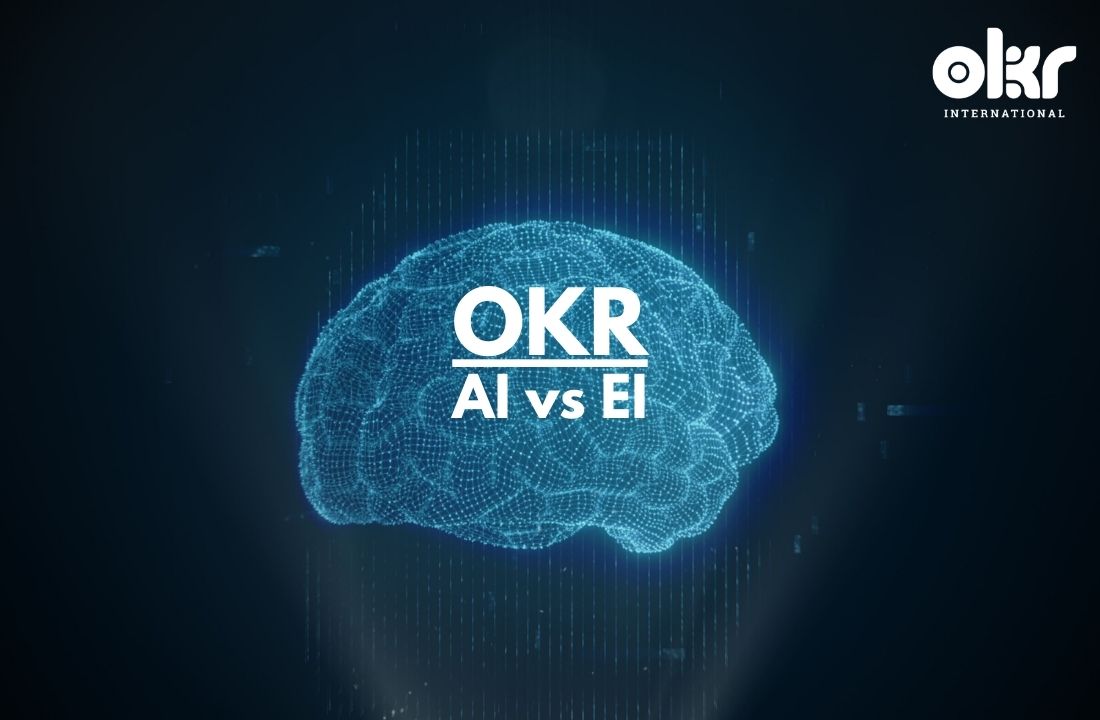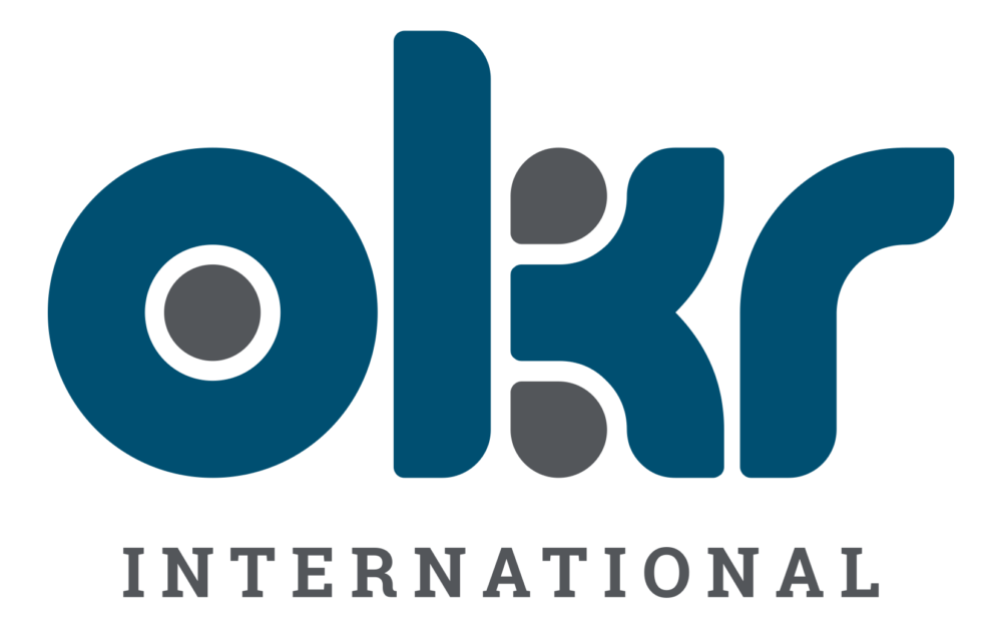Artificial intelligence (AI) is no longer a futuristic concept; it’s reshaping industries, altering job roles, and redefining success metrics in real-time. Imagine a world where AI dictates business strategies, automates decision-making, and evaluates employee performance. In such a scenario, where does the human element fit in? This article explores how integrating EI (Emotional Intelligence) is the key to AI-Proofing Your OKRs. By balancing AI’s data-driven efficiency with human empathy, creativity, and judgment, we can ensure that our OKRs remain meaningful and effective.
What is AI-Proofing?
AI-proofing refers to designing processes, systems, or products to resist replacement by artificial intelligence. This involves ensuring that certain tasks or roles remain dependent on human skills, judgment, creativity, or other uniquely human attributes, like Emotional Intelligence, that AI cannot easily replicate. The goal is to safeguard these aspects from being overtaken by AI technologies, thereby preserving jobs, maintaining human oversight, and ensuring that critical thinking and emotional intelligence remain integral parts of the process.
Why AI-Proofing OKRs Matters
While AI offers numerous benefits, it also poses significant risks to the OKR framework if not carefully managed. Here are three compelling reasons to make your OKRs AI-proof:
- Preserving Human Motivation: AI systems, despite their sophistication, lack the ability to understand and incorporate the nuanced human motivations and emotions that drive performance.
- Aligning with Core Values: AI may prioritize efficiency and productivity at the expense of employee well-being and engagement, leading to a workforce that feels undervalued and disconnected from the organization’s mission.
- Avoiding Bias: AI can inadvertently reinforce biases present in the data it processes, resulting in unfair or unrealistic objectives. This can perpetuate inequality and hinder the overall effectiveness of the OKR system.
The Power of Emotional Intelligence in OKRs
Emotional Intelligence (EI) plays a crucial role in setting and achieving OKRs by enhancing human interactions, team morale, motivation, and conflict resolution—areas where AI lacks the nuanced understanding and empathy required. By focusing on fostering strong team dynamics, promoting open communication, and providing supportive leadership, EI helps create a work environment where human strengths complement the structured framework of OKRs. This synergy ensures that the uniquely human aspects of collaboration and strategic thinking are preserved, making the OKR process resilient despite advancements in AI technology.
Incorporating EI into OKRs
Incorporating EI ensures that OKRs remain aligned with human values and organizational culture. Leaders with high EI can better understand their team’s strengths and weaknesses, set realistic and motivating goals, and provide the necessary support to achieve them. Empathy and strong social skills enable leaders to foster a collaborative and inclusive environment, enhancing overall team performance. Moreover, EI helps in maintaining open and effective communication, ensuring that feedback is constructive and that everyone is aligned with the organization’s objectives. This human-centric approach not only improves engagement and satisfaction but also drives sustainable success.
Understanding Emotional Intelligence (EI)
Emotional Intelligence (EI) has emerged as a critical factor in personal and professional success. As the workplace evolves with increasing technological integration, the importance of EI cannot be overstated. Let’s delve into what EI entails and its essential components.
Definition of EI Emotional Intelligence refers to the ability to recognize, understand, manage, and influence one’s own emotions and the emotions of others. It involves a set of skills that help individuals navigate social complexities, make informed decisions, and foster positive relationships. Unlike cognitive intelligence, which is primarily about intellectual capabilities, EI focuses on the interplay between emotion and intelligence.
Components of EI Emotional Intelligence comprises five key components: self-awareness, self-regulation, motivation, empathy, and social skills. Each of these components plays a vital role in how we interact with others and handle the emotional demands of life and work.
- Self-Awareness: The foundation of EI, involving recognition and understanding of one’s own emotions, strengths, weaknesses, values, and motivations. This awareness allows better decision-making and understanding of how one is perceived by others.
- Self-Regulation: The ability to manage and control one’s emotions, especially in stressful situations, enabling individuals to stay calm, clear-headed, and balanced.
- Drive (Motivation): A passion for work that goes beyond external rewards, characterized by energy, persistence, and resilience in the face of setbacks.
- Social Awareness (Empathy): The ability to understand and share the feelings of others, crucial for building trust, effective communication, and conflict resolution.
- Social Regulation: The skills needed to interact and communicate effectively with others, including active listening, teamwork, conflict management, and leadership.
Download Sample
Bridging AI and Emotional Intelligence
As artificial intelligence (AI) continues to advance and integrate into various aspects of our lives, understanding its capabilities and limitations, particularly in relation to human emotions, becomes crucial. While AI excels in data processing, pattern recognition, and automation, there are aspects of human interaction, such as Emotional Intelligence (EI), that it cannot fully replicate.
AI operates based on data and programmed responses; it lacks genuine understanding and subjective experience. While AI can recognize and respond to certain emotional cues based on patterns and predefined rules, it does not truly “feel” or comprehend emotions in the way humans do.
Why AI Cannot Replicate Human Emotions
The inability of AI to replicate human emotions stems from its fundamental nature. Emotions are deeply rooted in human consciousness and subjective experience. They are influenced by a complex interplay of biology, psychology, and social interactions, none of which AI can fully grasp or mimic.
- Lack of Consciousness: AI lacks consciousness and self-awareness. It cannot experience emotions because it does not possess a mind or subjective inner life.
- Absence of Personal Experience: Human emotions are shaped by personal experiences, memories, and individual histories. AI processes information without the context of personal experience.
- No Genuine Empathy: True empathy requires emotional resonance, which AI cannot achieve.
- The Unique Human Touch: EI involves recognizing, understanding, managing, and influencing emotions, essential for effective communication, relationship-building, and leadership.
- Authentic Relationships: Humans form deep, meaningful relationships based on genuine emotions and empathy.
- Complex Problem Solving: Many problems require understanding human emotions and motivations, which EI enables.
- Adaptability and Creativity: Human emotions drive creativity and innovation, essential for solving problems and driving progress.
- Leadership and Motivation: Effective leaders use EI to inspire and motivate teams, fostering a supportive and productive work environment.
Conclusion
In conclusion, the synergy between AI and Emotional Intelligence is essential for creating resilient and effective OKRs. By understanding and leveraging the unique strengths of both AI and EI, organizations can navigate the complexities of modern business, ensuring that their objectives and key results are both data-driven and deeply human-centered. As AI continues to evolve, the role of Emotional Intelligence in maintaining a balanced and human-centric approach to goal-setting and achievement will only become more critical.
_____________________________________________________________________________________________________________________
Get in touch with us at info@okrinternational.com and let’s explore how we can help you.
To become a licensed partner, click here.



